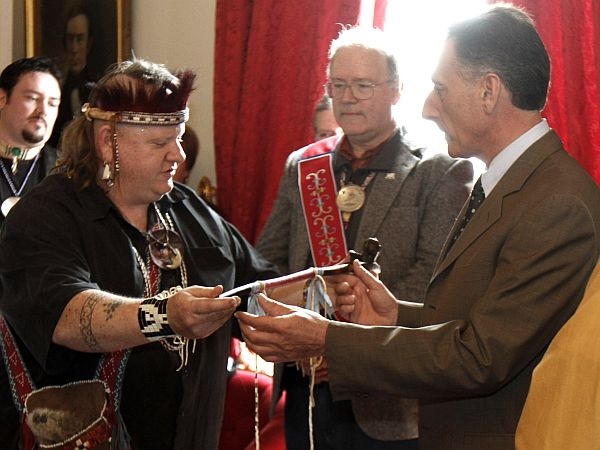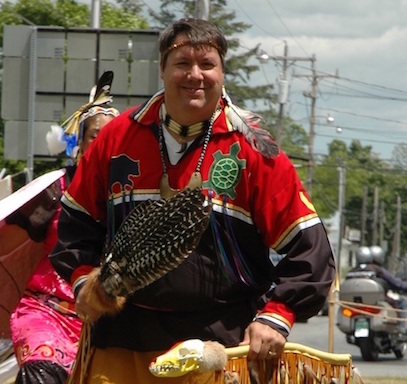
Chief Roger Longtoe Sheehan of the Elnu Abenaki with Governor Peter Shumlin. 2012. Source: http://www.vpr.net/episode/53561/recognizing-vermonts-abenaki/.
Abenaki and Mohawk people continue to live on their ancestral territories today, and they continue to fight to preserve their cultures and gain political recognition. The Abenaki tribes of Vermont have pursued several efforts in recent years to gain state- and federal-level recognition, and today there are four state-recognized Abenaki tribes: the Elnu Abenaki Tribe, the Nulhegan Abenaki Tribe, the Koasek Traditional Band of the Koas Abenaki Nation, and the Abenaki Nation at Missisquoi, who all gained recognition in 2011 and 2012. [ref] Vermont Commission on Native American Affairs, “State Recognized Tribes.” [/ref] State recognition has helped many Abenaki people in Vermont to access opportunities they would otherwise not have, especially the right to sell traditional craftwork as authentically Abenaki-made. The St. Regis Mohawk Tribe is recognized at the federal level in both the U.S. and Canada, and the tribe has a reservation at Akwesasne which straddles the U.S.-Canada border. [ref] National Museum of the American Indian, “Background Information on the Akwesasne Mohawk.” [/ref]
Listen to the stories above to hear about the Abenakis’ fight for state-level recognition as well as some of the recent political issues surrounding land claims on Mohawk traditional territory in New York’s North Country. Don Stevens, the Chief of the Nulhegan Band of the Coosuk Abenaki Tribe and the former chairperson of the Vermont Commission on Native American Affairs, shares his insights below on issues related to the fight for recognition, cultural preservation, and other issues that the Abenaki community in Vermont faces today.

Don Stevens. Image used with permission.